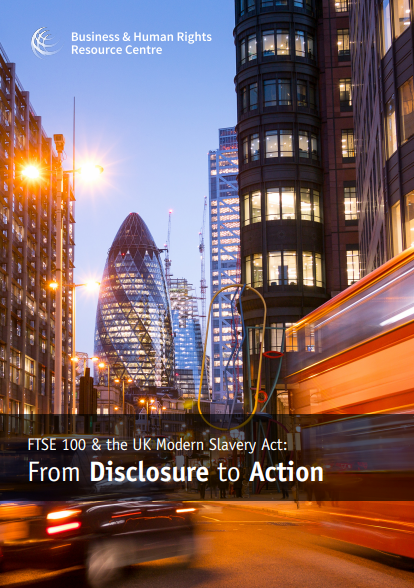In 2015, the UK Government introduced the Modern Slavery Act (MSA), which requires certain companies publish an annual statement detailing what steps they have taken to tackle modern slavery, both in their operations and in their supply chains. Business & Human Rights Resource Centre (BHRRC) has tracked companies’ reporting every year since, and our findings show that the MSA has failed to deliver the transformational change many hoped for.
Three years on, most companies still publish generic statements committing to fight modern slavery, without explaining how. Sadly, only a handful of leading companies have demonstrated a genuine effort in their reporting to identify vulnerable workers and mitigate modern slavery risks.
This report is BHRRC‘s third annual assessment of transparency statements by the FTSE 100 under the MSA. As in their previous assessments, the action reported by companies varied greatly, with only a small cluster of leaders standing out, such as Marks & Spencer, Diageo, Morrisons, and Sainsbury’s.
Key findings include:
- Marks & Spencer, Diageo, Morrisons & Sainsbury’s among leading companies that have improved each year
- More than 7 out of 10 FTSE100 companies scored below 40% & are not reporting sufficient measures to tackle slavery under the law
- Persistent lack of detail in reporting: companies state they have taken a certain action but do not explain their process
- Calls on UK Govt. to make it mandatory for companies to identify & mitigate their slavery risks through human rights due diligence

